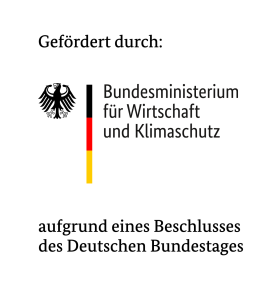KI Wissen - Automotive AI powered by Knowledge
Who is responsible for traffic law?
In Germany, the German Road Traffic Regulations (Straßenverkehrsordnung) stipulate in great detail, what lawful behavior in road traffic - including for autonomous vehicles! - looks like. Yet situations may occur in which drivers have to overlook these regulations in order to obey a different one: Running a red light to give way to an ambulance or crossing a solid line to avoid an obstacle are two powerful examples. But how should an autonomous vehicle behave in these scenarios? In order to respond to such secnarios adequatly autonomous vehicles have to learn to deal with a "conflict of norms" on their own. It is at this point, where there is still a considerable need for research.
Aims and approach
The basic requirement for autonomous driving is AI-based procedures. The focus of the AI Knowledge research project is on developing methods for integrating existing knowledge into the data-driven AI functions of autonomous vehicles. An interdisciplinary team is working on developing concepts for formalizing general clauses that are universally applicable. The goal is to create a comprehensive ecosystem that incorporates approved knowledge into training and secures AI functions.
How does AI implement our decisions?
The task of Professor Dr. Georg Borges' chair is to study the legal issues of formalizing rule-based knowledge, represented in particular by legal norms. The focus is on identifying the relevant legal rule including unwritten rules as well as unwritten exemptions. From here, methods for formalizing the norms are to be determined in order to make them accessible for algorithmic processing. These results are then to be checked in concrete maneuver decisions on the basis of the normative background and, if necessary, the normative context and its formalization are to be enhanced.

|
Project Managers |
Chair of Civil Law, Legal Informatics, German and International Business Law and Legal Theory (Prof. Dr. Georg Borges) |
|
Contact Person |
Elisabeth Friedel (Mail) |
|
Research Assistant |
Puria Sheikhipour, Dr. Andreas Sesing (Mail) |
|
Project Partners |
 |
|
Project Duration |
January 2021 – December 2023 |
|
Project-Website |
|
|
Project Profile |
Here you can download the project profile in pdf form (available in German only). |




